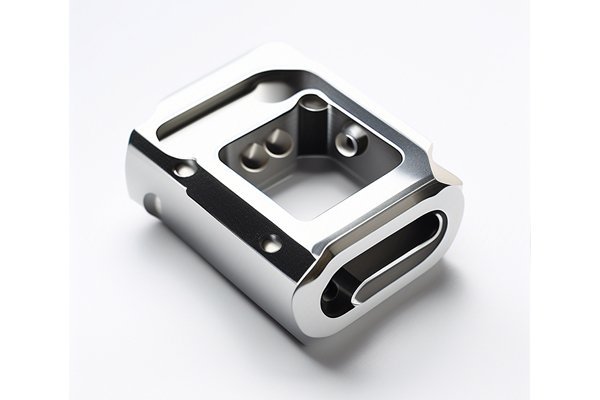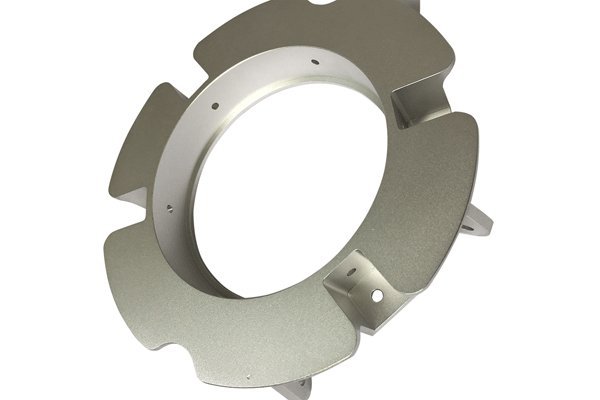: The Rise of CNC Machining in Manufacturing
Did you know that the global CNC machining market is expected to reach 100 billion U.S. dollars by 2025? This incredible growth is largely driven by innovations in aluminum processing, which is known for its lightweight yet robust characteristics, making it an ideal choice for numerous industries. CNC (Computer Numerical Control) machining has transcended traditional manufacturing, bringing precision, speed, and versatility to the production of complex parts. As industries continuously seek customized solutions, the question arises: can CNC aluminum processing plants provide tailored parts assembly services to meet diverse design and functionality requirements?
This blog will delve deep into this topic, exploring how CNC aluminum processing plants can adapt to client specifications for various industries and applications, while outlining the essential techniques, processes, and advancements in CNC machining technology.
—
Understanding CNC Machining and Its Importance in Manufacturing
What is CNC Machining?
CNC machining refers to a process that utilizes computerized controls to create precise parts and components from a variety of materials, including metals, plastics, and composites. The technology encompasses several methods, including milling, turning, drilling, and more, allowing for intricate designs that meet specific tolerances and specifications.
The Significance of Aluminum in CNC Machining
Aluminum is one of the most commonly used materials in CNC machining due to its outstanding properties, including:
The Demand for Customized Parts Assembly in Various Industries
As businesses diversify their products, the demand for customized parts assembly is becoming increasingly paramount. Various industries, including aerospace, automotive, medical devices, electronics, and consumer goods, require specific designs tailored to their unique operational needs. CNC aluminum processing plants play a pivotal role in meeting these demands by offering specialized services that include design, prototyping, production, and assembly.
—
How CNC Aluminum Processing Plants Can Offer Customized Parts Assembly Services
To provide customized parts assembly services effectively, CNC machining plants must start by thoroughly understanding the client’s requirements. This involves engaging in detailed discussions and consultations to gather information on:
By addressing these factors, manufacturing plants can create customized solutions designed to meet or exceed client expectations.
Once a clear understanding of client needs is established, CAD (Computer-Aided Design) software comes into play. CNC aluminum processing plants often have proficient design teams capable of translating customer concepts into digital 3D models.
Benefits of CAD in Customized Assembly:
In addition to CAD, prototyping plays a significant role. Rapid prototyping technologies, such as 3D printing or CNC machining of sample parts, enable manufacturers to produce prototypes efficiently. This iterative approach allows clients to test and validate design elements, enhancing the final product quality.
With a validated design in hand, CNC machining comes into the picture to produce customized aluminum parts. The precision involved in CNC machining is unparalleled due to automated processes that minimize human error. Various CNC machining methods performed in aluminum processing plants include:
By using advanced CNC machines equipped with multi-axis capabilities, manufacturers can produce intricately designed parts that fit perfectly in a larger assembly.

Customized parts may require specific surface treatments for optimal performance and aesthetics. CNC aluminum processing plants can offer a range of finishing options, including:
Particularly complex designs might also call for more intricate finishing processes, depending on the application requirements.
Once individual components are produced, they need to be assembled effectively. CNC aluminum processing plants often provide assembly services to ensure that each part fits seamlessly into the final product. This can involve:
By offering comprehensive assembly solutions, CNC aluminum processing plants enhance the overall efficiency of the manufacturing process and reduce lead times.
To stay competitive and meet evolving demands, numerous CNC aluminum processing plants are integrating robotic systems and automated processes into their workflows. The incorporation of robotics leads to:
By leveraging technology, manufacturers can enhance their ability to deliver customized assembly services that align with industry needs.
—
Challenges and Solutions in Offering Customized Parts Assembly Services
Providing customized parts assembly services is not without challenges. Some key issues that CNC aluminum processing plants may face include:
Challenge: Customers may generate highly intricate designs that pose manufacturing difficulties.
Solution: CNC manufacturers should invest in advanced design simulation software that helps visualize manufacturing processes and identify potential challenges before production begins.
Challenge: Different aluminum alloys have varying machinability, which can complicate production.
Solution: CNC plants must utilize sophisticated material selection strategies, engaging in testing and preparing for varying characteristics of alloy types based on client specifications.
Challenge: Tight timelines may lead to rushed processes, compromising quality.
Solution: Establishing efficient workflows, employing robust project management approaches, and fostering clear communication with clients ensures that deadlines are met without sacrificing quality.
Challenge: The rapid pace of technological advancement necessitates continuous updates in machinery and processes.
Solution: Establishing partnerships with technology providers ensures that CNC aluminum processing plants stay current with industry standards and advancements, enabling improved capabilities.
—
: The Future of Customized Parts Assembly in CNC Aluminum Processing
The ability of CNC aluminum processing plants to provide customized parts assembly services is pivotal in today’s manufacturing landscape. By effectively harnessing technology, adhering to precise machining practices, and maintaining strong communication with clients, these plants can adapt to various industry demands.
In summary, understanding client requirements, using advanced design and prototyping capabilities, relying on precise CNC machining processes, offering customized surface treatments, and efficient assembly techniques are all fundamental to delivering tailored solutions.
The importance of these capabilities resonates in the growing need for innovative products across industries. Looking ahead, it’s clear that the evolution of CNC aluminum processing will continue to redefine manufacturing, paving the way for unprecedented customization at scalability.
As industries evolve and demands increase, the effectiveness of CNC aluminum processing plants in providing customized parts assembly will undoubtedly remain a crucial topic for businesses to consider. Embracing this opportunity not only leads to improved product development but also positively impacts profitability and competitiveness in the market. The time has come to engage with CNC suppliers to explore how they can fulfill your unique manufacturing needs and drive your business forward.






